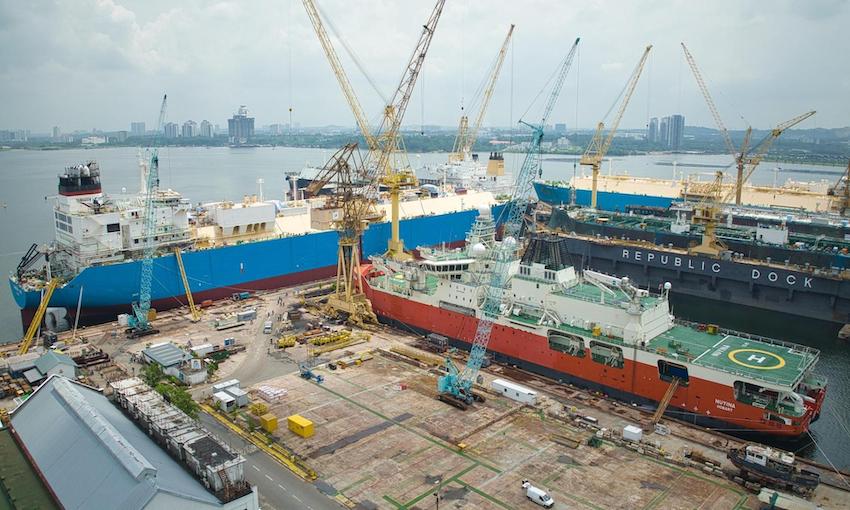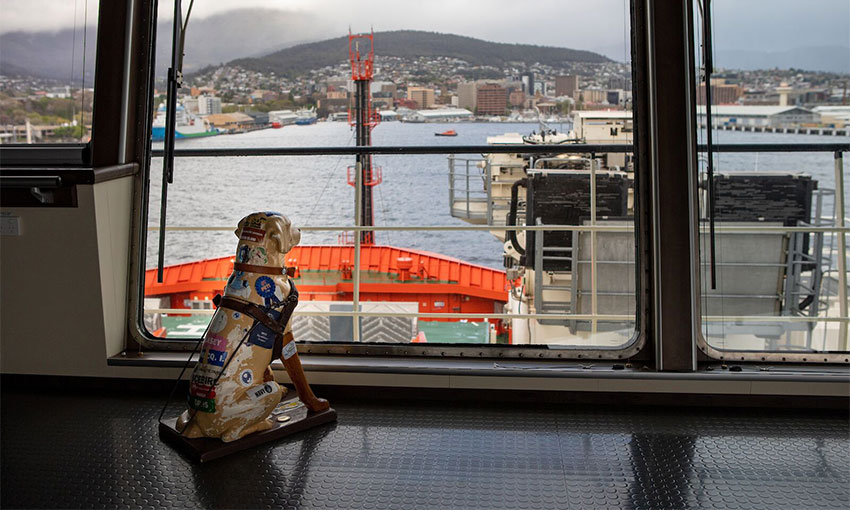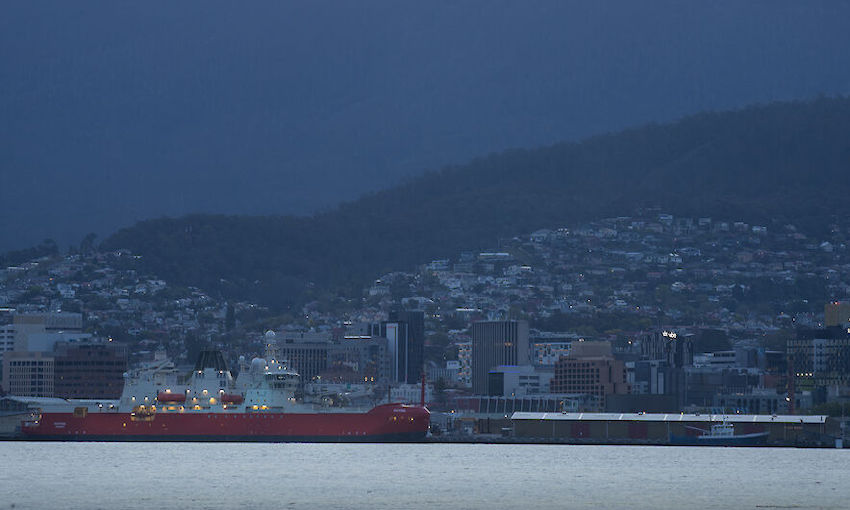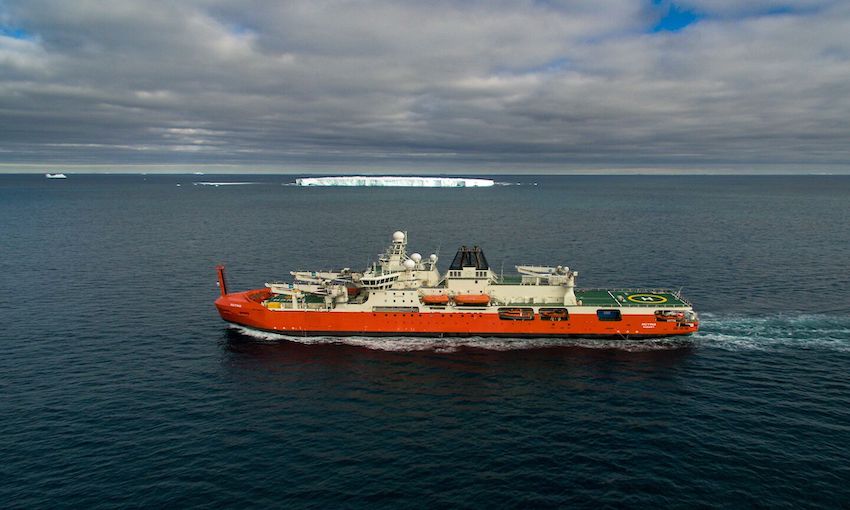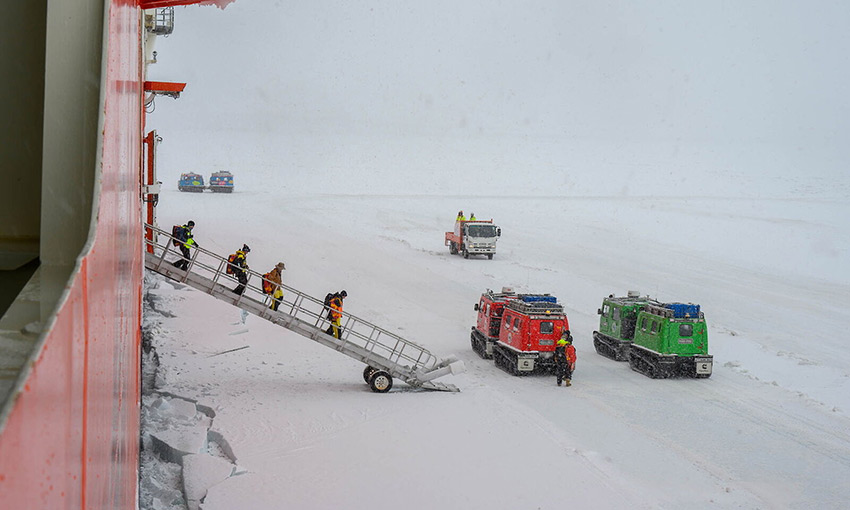MATERIAL shortages and supply chain issues have delayed the delivery of spare parts for icebreaker RSV Nuyina. The vessel is unlikely to be in service for the upcoming Antarctic season.
The Australian research vessel arrived in Singapore for scheduled maintenance in April this year and was due to return to its home port of Hobart this October.
However, due to the delay in receiving spare parts, the Australian Antarctic Division has moved to adjust Nuyina’s shipping plans.
THE AAD said it has been working with the ship’s operator Serco to resolve issues and make repairs as part of the normal commissioning process during the warranty period.
AAD director Kim Ellis said the works include improvements to the hydraulic control system within the propulsion system clutches, where an issue was identified.
“While work has been progressing well on the clutches, an unexpected issue was discovered in the large couplings that connect the propulsion shafts with the clutches,” Mr Ellis said.
“Following initial investigations and testing, the manufacturer has determined that shaft couplings need to be replaced.
“Delivery timeframes for replacement couplings are lengthy, driven to a large extent by material shortages and supply chain issues.”
AAD shipping manager Nick Browne told DCN the replacement parts are being manufactured by the original equipment manufacturer in Sweden.
“They will be air-freighted from Sweden to the vessel in Singapore for installation,” he said.
“Based on the information currently available to us, the delivery timeframe for these spare parts is estimated to be around 18 weeks.
“The estimated timeframes are inclusive of material supply, production and delivery time to the vessel, and are subject to change.”
The resulting delay of several months means Nuyina is unlikely to be available for resupply and science operations in the 2022-23 Antarctic season.
Nuyina undertook its first two Antarctic voyages earlier this year, resupplying research stations and testing the vessel’s science systems.
But in the upcoming season, two additional vessels will transport critical cargo and bring expeditioners home.
Mr Ellis said icebreaker Aiviq and ice-strengthened cargo ship Happy Dynamic have been secured for the task.
“Change-over dates for the 90 expeditioners currently living and working at Australia’s four research stations in Antarctica and on Macquarie Island will remain much the same,” Mr Ellis said.
He said Aiviq was chartered to refuel and resupply the AAD’s stations last season and remains in Hobart for the season ahead.
“Planning for disruption and the unexpected is an important part of the Australian Antarctic Program, and we had always planned this contingency during the commissioning and warranty phase for Nuyina.”
Chief scientist Professor Nicole Webster said the AAD was examining the changes and implications for science projects.
“Science remains at the heart of the Australian Antarctic Program and we will work closely with research teams on options to support their summer science projects,” Ms Webster said.
The ship’s commissioning and trials phase is expected to continue for at least the first two years of its service, while it is under warranty with shipbuilder Damen.

